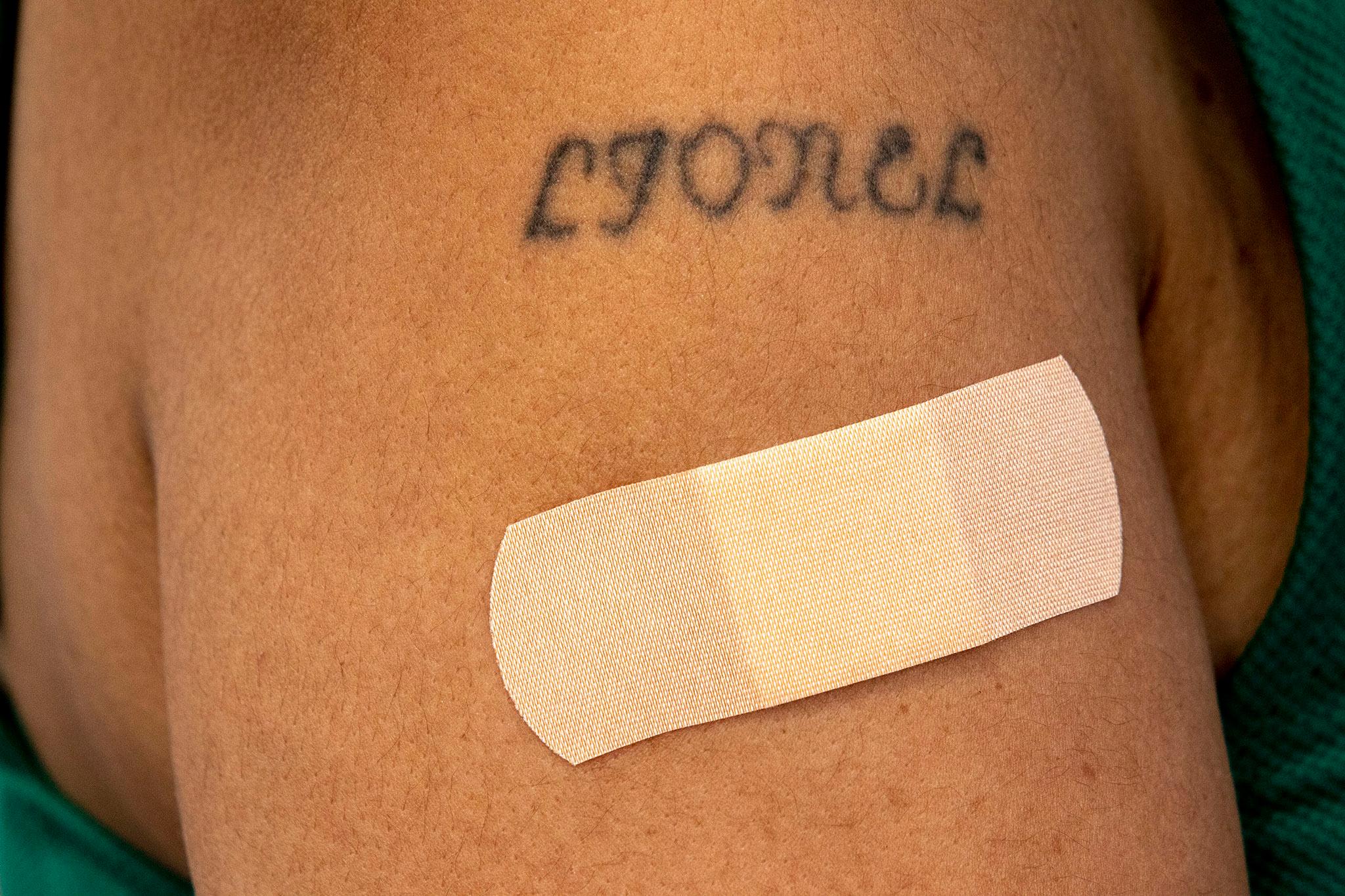
For hesitant workers in Colorado health care or government jobs, today is deadline day.
State rules governing health care facilities, including nursing homes, required staff to be fully vaccinated against COVID-19 by the end of the day Sunday, or have a medical or religious exemption from the requirement. The same is true for state government workers.
In some cases, those who chose not to get vaccinated but did not receive an exemption will face regular testing, and requirements to wear personal protective equipment, maybe even at all times.
In other cases, those who refused without an exemption have already been notified they would lose their jobs if they didn’t quit first.
Many workplaces with mandates report vaccination levels rose into the 80 and 90 percent range, in some cases an increase of roughly 15 percent or more since the mandates were announced late in the summer.
So ... was the effort worth it?
“Boy, that's the $50,000 question. It's really, it's hard to say,” said Doug Farmer, the president and CEO of the Colorado Health Care Association, which represents more than 200 nursing homes and assisted living centers.
About 88.5 percent of assisted living and skilled nursing workers in Colorado are now fully vaccinated, he said. That’s a figure few communities in the state could match.
“(The mandate) did cause a fair number of people that had just been sort of sitting and not getting the vaccine to go ahead and make the decision to become vaccinated in order to continue to be a health care provider,” Farmer said.
But the mandate, and deadline, also created a lot of anxiety for nursing homes. The labor market is extremely tight and the long-term care sector is wary of losing any employees.
“The workforce shortage is just putting a tremendous amount of pressure on the whole health care system right now,” he said. “We're fearful of losing any of our capacity to provide care.”
Ultimately, 89 percent of workers at skilled nursing facilities had been fully vaccinated through the middle of last week. Few or no employees refused the vaccine and failed to get an exemption, though 5 percent of those workers still needed to get a second dose to be considered fully vaccinated by the deadline. Another 5 percent have either medical or religious exemptions.
Ninety-two percent of Colorado’s hospital workers are now fully vaccinated. The same is true for 91 percent of employees of assisted-living residences, and 80 percent of workers in group homes and intermediate care facilities. That’s according to data, as of Oct. 26, from the state health department.
Vaccinations rose about 15 percent after the mandate for the three categories that didn’t include hospital workers (who were, as a group, already highly vaccinated before the mandate).
Eleven percent of the workers in the group with the lowest figure, group home/intermediate care facilities, were granted religious exemptions. A smaller percentage in each category are partially vaccinated, meaning they’ve only received a first vaccine dose.
Adding together those workers who got religious or medical exemptions and that small sliver still classified as unvaccinated, the total percentage of unvaccinated workers represent less than 20 percent of the total in each group, with 17 percent for those in group homes/intermediate care and less for assisted living (7 percent), hospitals (6 percent) and skilled nursing (5 percent).
“It was worth, in my mind, absolutely worth the squeeze,” said Dr. Michelle Barron, the senior medical director of infection control and prevention for UCHealth, one of the state’s largest health systems. “I find it unfortunate that there were individuals that had to be let go, but I also feel strongly they don't belong in health care.”
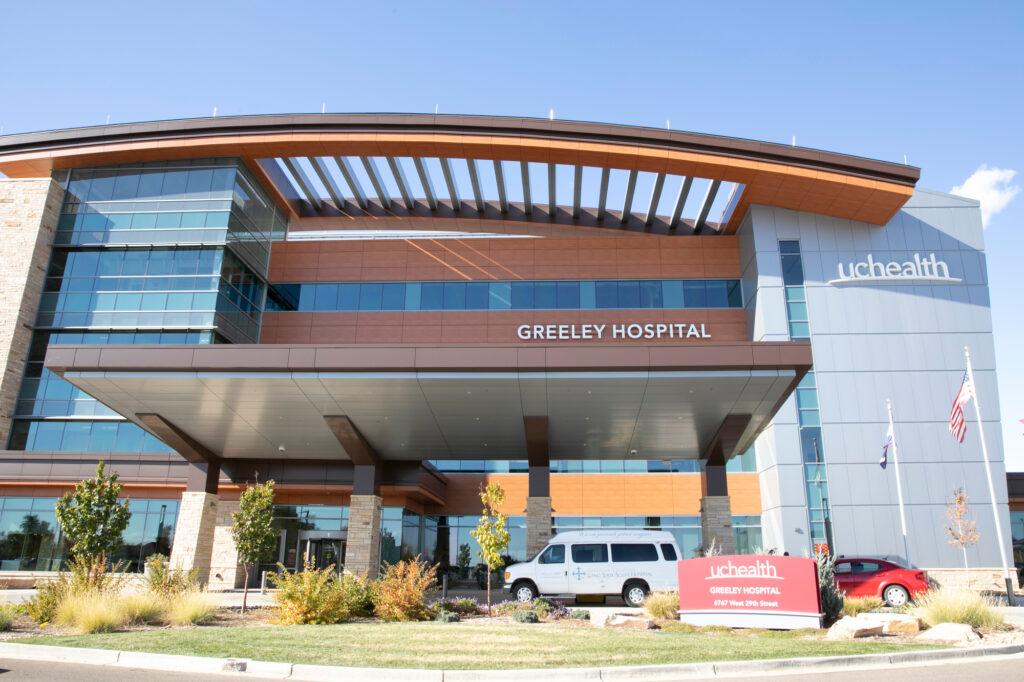
How the vaccine mandate worked out at Colorado hospitals.
UCHealth had high levels of buy-in to the COVID-19 vaccinations from the get-go: More than 95 percent of employees chose to get vaccinated, many well before the mandate. The system still granted 1,100 medical or religious exemptions — that’s about 4 percent of its 26,500 total workforce. Employment was terminated for 119 workers.
Despite the loss of these employees, a UCHealth spokesman said the COVID-19 vaccination requirement has actually helped to improve staffing.
“With broad vaccination rates, fewer employees are testing positive for COVID-19 and needing to be out of work while they recover,” said UCHealth’s Dan Weaver.
With Colorado still in the midst of a fifth wave of the pandemic, amid sustained high levels of COVID-19 hospitalizations, doctors and public health experts say the higher the vaccination rates the better.
“We have to do everything we can to protect the people that we are taking care of,” Barron said. “And that includes getting vaccines.”
Another system, HealthONE, shared similar numbers. Of 11,500 employees at its nine Denver-area hospitals, including Medical Center of Aurora and Rose Medical Center, 93 percent are now fully vaccinated. About 7 percent, 638 employees, got a religious or medical exemption. Five employees were let go for failing to get vaccinated or getting an exemption.
The impact of the mandate?
“There was a modest increase over the past two months, approximately eight percent following the mandate,” said HealthONE spokesperson Stephanie Sullivan.
Kaiser Permanente Colorado, the state’s largest nonprofit health care provider, said 99.5 percent of its workforce of 7,000 employees were either vaccinated or got an exemption. About 30 people who haven’t done either are on unpaid administrative leave and have an extension until Dec. 1 to do so or face dismissal. The system didn’t share numbers on what percentage of employees were granted an exemption.
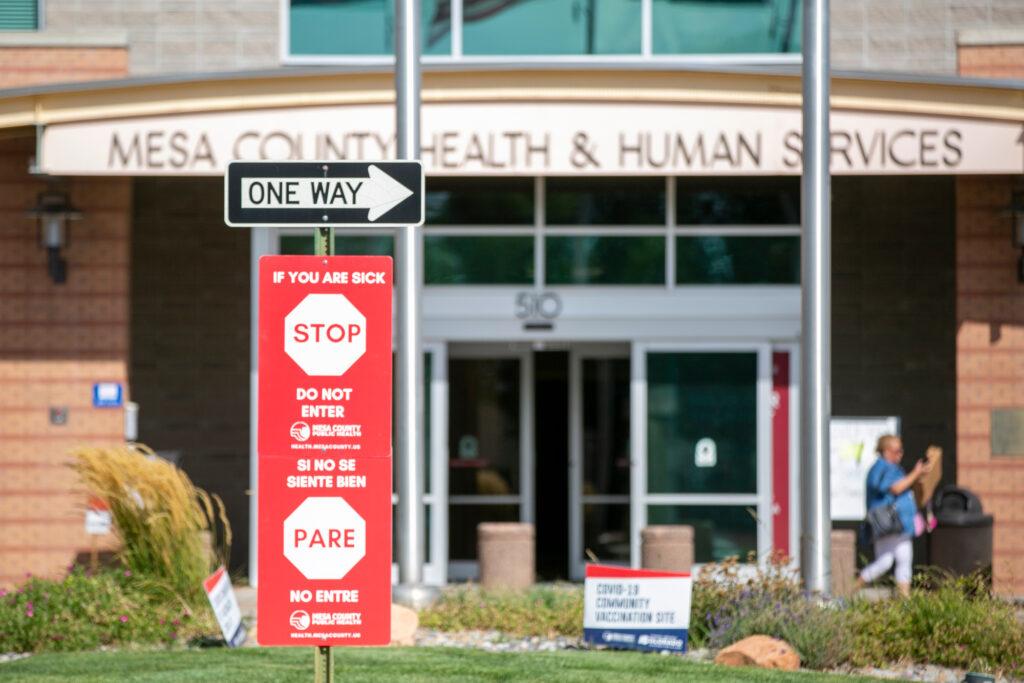
Hospitals on the Western Slope and in rural Colorado lagged behind those on the Front Range.
Rural Colorado hospitals too saw employee vaccination increase after the mandate, but their numbers appear to lag behind their Front Range counterparts.
“We’ve moved the needle quite a bit,” said Dr. Thomas Tobin, chief medical officer for Community Hospital in Grand Junction.
He estimated the hospital started at 65 percent of staff fully vaccinated before the mandate and now is close to 80 percent.
"Then obviously, we have a number of exemptions.”
The hospital’s numbers are better than Mesa County, where it’s located, where 53 percent of residents have received at least one dose.
“We're hoping to not lose very many people (with the deadline now here),” he said. “But it's been a big concern for us, because of being a small rural hospital, even five or 10 percent of our workforce could devastate our ability to care for patients.”
- The COVID vaccine will soon be available for 5 to 11 year-olds. Here’s what Colorado parents and kids say about it.
- Colorado’s veteran living centers prevented COVID-19 better than similar facilities, audit finds
- ‘No place for the patient to go ’ — As a new COVID wave hits, hospitals struggle to find open beds
- Colorado’s college campuses have become COVID vaccine islands, with lower case rates than the surrounding areas
It’s a similar story south of there at Montrose Memorial Hospital, where 10 employees chose to quit rather than receive the vaccine or be granted an exemption. Chief Executive Officer Jeff Mengenhausen said another 30 or 40 unvaccinated staff members — about five percent of its workers — had not told the hospital what they’re going to do yet, as the Nov. 1 vaccination deadline loomed.
“Unfortunately, we're not dealing with science, we're dealing now with emotion and beliefs and it's a very polarizing issue,” Mengenhausen said. “And I'm trying to walk that very fine line on supporting our caregivers and also supporting the vaccine and believing in the vaccine. But I need to keep my beds open, keep my valued caregivers so that I can take care of our communities here.”
As the latest coronavirus wave has hit on the Western Slope, staffing is tight. He said the hospital hires traveling nurses, but they’re expensive and finding local workers for those jobs, or things like housekeeping, is tough.
“Having the mandate on top of that makes it even harder because caregivers are leaving health care due to it,” he said.
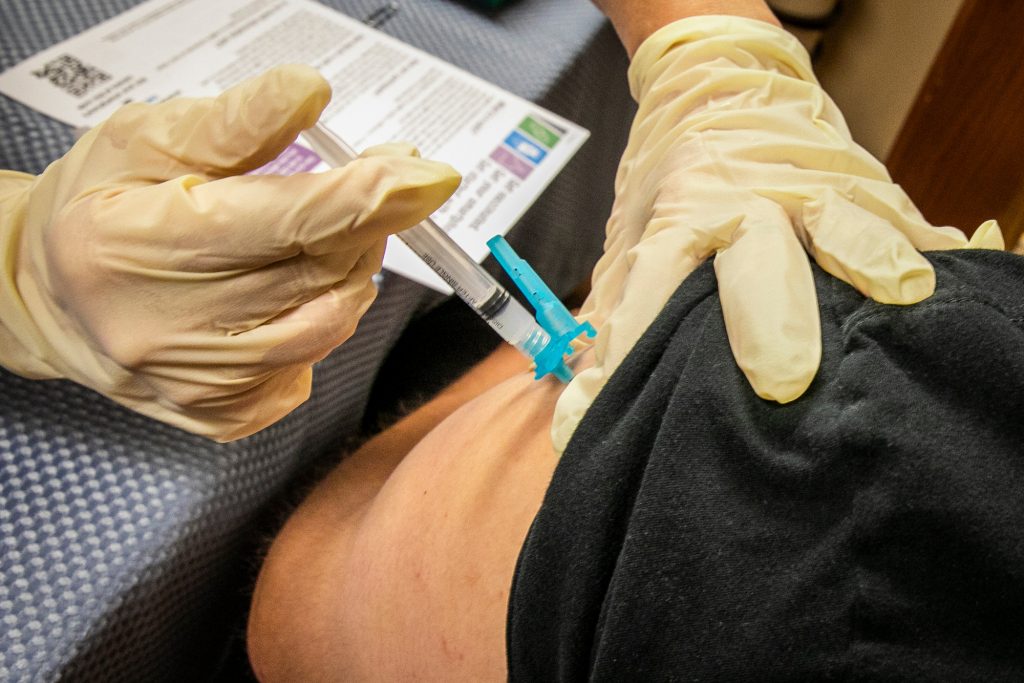
Vaccine mandates also made an impact with government workers.
Employees in state government and the city of Denver too saw their vaccination rates climb higher after vaccinations were made mandatory. Also, in some cases incentives helped provide motivation for vaccination.
Eighty-seven percent of the roughly 28,000 state employees under the authority of the vaccine mandate issued by Gov. Jared Polis are either fully vaccinated or have taken their first vaccine dose, as of Oct. 22. That’s according to the state health department.
Some departments reported nearly 100 percent of workers with at least one vaccine dose, including the Office of Economic Development (100 percent), Governor’s Office (99 percent) and Department of Higher Education (98 percent).
Workers from the Department of Transportation (65 percent) and Department of Agriculture (69 percent) had the lowest rates.
The state offered a $500 incentive to 3,958 Department of Corrections employees who received their vaccine prior to May 31. The nearly $2 million in funds to pay for the incentive came from federal COVID relief money.
It seemed to have an impact. At the time DOC offered the incentive, only 38 percent of corrections staff were vaccinated. That figure has risen to 84 percent now having received at least a first dose of the vaccine.
The state said its division of human resources had received 1,203 pending exemption requests, but had no data on outcomes of those requests. State employees who are not vaccinated, and do not fall under the state’s required vaccine policy, must be tested twice weekly.
Employees working in state-run congregate or round-the-clock health care facilities and interacting with vulnerable patients must be vaccinated and do not have the option to test twice weekly. Those who have not been vaccinated, are not participating in testing, and do not have an approved exemption could be subject to discipline, a spokeswoman said. Disciplinary action could include a wide range of actions, up to and including termination.
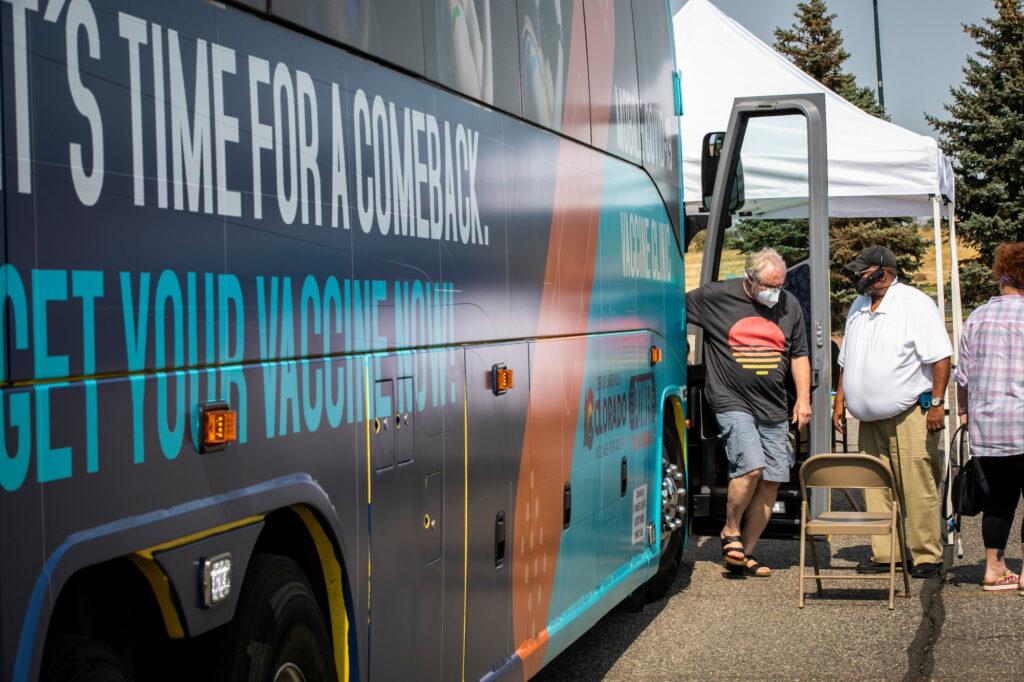
A closer look at vaccinations among Denver city workers.
Denver said 94 percent of its 10,600 employees got fully vaccinated, while 6 percent (611 workers) got a medical or religious exemption. Unvaccinated workers who haven’t applied for an exemption will face disciplinary consequences, including leave without pay, and ultimately dismissal.
In August, with delta variant-fueled coronavirus tripling in the prior weeks, Mayor Michael Hancock announced the vaccine requirement for city workers, teachers, and health care employees.
The city said it didn’t have employee vaccination numbers for August. But, based on where Denver was at the time, it’s reasonable to assume about 70 percent of city workers were fully vaccinated then, said Bob McDonald, the executive director of the Denver Department of Public Health and Environment.
“To see somewhere between a 20 to 30 percent increase after the mandate, I think is remarkable. So I think with respect to the mandate per city employees, I think it absolutely did work,” McDonald said.
He said the city’s health department looked to answer hesitant employees' concerns, with more than 20 town hall meetings with various departments.
“So I think we were able to get a lot of people on board through those town halls,” McDonald said.
But the effort hasn’t been easy, he conceded. Seven Denver police officers sued, alleging the city’s vaccine mandate was unlawful. A judge dismissed the suit, and McDonald said that complaint would now be pursued through a city administrative process.
Other protective measures are required for those who received exemptions and didn’t get vaccinated.
“If they can't be vaccinated, if they're granted an exemption, then they need to be wearing a face covering. They need to be tested. They need to be physically distanced where possible,” McDonald said.
The same is true in nursing homes and assisted living centers, said Farmer. Unvaccinated workers would have to abide by rules that require full PPE, personal protective equipment. That means “gown, mask, face shield, gloves, all that stuff, at all times,” he said, plus daily rapid testing, as opposed to biweekly testing for those who are vaccinated.
“Try out an N95 mask and wear it for a full day,” Farmer said. “It's not pleasant, there's nothing enjoyable about it.”
The mandate prompted a wide range of results.
In big Front Range hospital systems, the ones most likely to deal with the most and most ill COVID-19 patients, in general compliance is high.
In some government departments and places more likely to suffer staffing challenges, like group homes and rural health facilities, the struggles in reaching a 90 percent-plus vaccination level, and keeping decent staffing levels, are clear.
That difficulty has prompted the state’s main hospital group, the Colorado Hospital Association, to request the board of health lower the vaccination mandate goal down to 90 percent from 100 percent. A CHA spokeswoman said that the threshold is the same that’s been required for health workers for a flu vaccine mandate for nearly a decade.
Meantime, the true picture of the impact of vaccine mandates is at this point a bit murky. Some health systems, like SCL Health, Centura and Banner, declined to release their data until they’d submitted it to the state on Monday.









